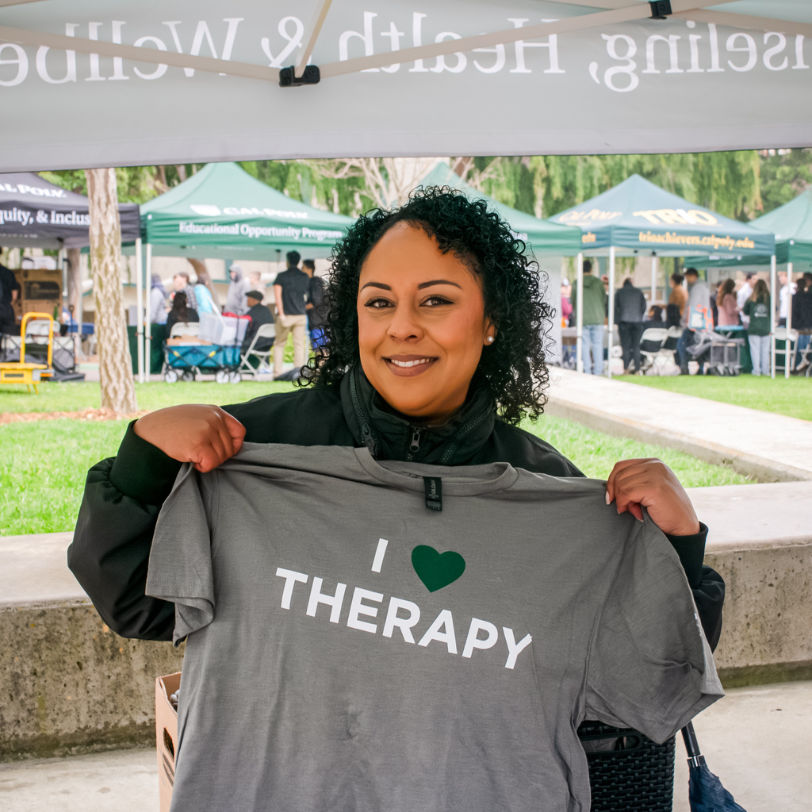Sexual Assault Resources

Cal Poly has many available resources if you have experienced a sexual assault or any other type of gender-based abuse. Whether the event(s) occurred before you were a student or since you came to campus, we are here to help. Please reach out to any of the following resources at any time.
Click here to view the complete CSU Policy detailing the rights & resources for survivors of sexual assault, misconduct, exploitation, dating or domestic violence, and stalking under the CSU Nondiscrimination Policy.
|
Organization/Department |
Services Offered |
Who They Report To |
|
Safer Campus Advocate 805-756-2282 8:30am-5:00pm Email: safer@calpoly.edu |
|
No one
|
|
Counseling & Psychological Services (CAPS) 805-756-2511 Monday-Friday, 8:30am-5:00pm (24/7; crisis line after hours) Email: counseling@calpoly.edu Location: Health Center Building 27 |
|
No one |
|
Lumina Alliance Location: 51 Zaca Ln #100, SLO Email: |
|
No one |
|
Civil Rights & Compliance Office Kaitlyn Blakey Director, Civil Rights & Title IX Coordinator/DHR Administrator 805-756-6770 Email: equalopportunity@calpoly.edu Civil Rights & Compliance Office Location: Building 33, Room 290 |
|
Title IX Director
|
|
Health Services Email: health@calpoly.edu Location: Building 27 |
|
Cal Poly Police Department
*student does NOT have to talk to officer |
|
Cal Poly Police Department Location: Building 36 |
|
Title IX Coordinator |
* While Safer Advocates and CAPS Counselors are confidential, most Cal Poly staff & faculty are considered Campus Security Authorities (CSA). As such, CSAs are required to report cases of sexual assault, domestic violence, and stalking to Cal Poly Police Department. Students are not required to speak with officers. CSAs include campus police, individuals with responsibility for campus security, and officials responsible for student activities such as student housing, student discipline, campus judicial proceedings, and most staff members who work directly with students.
WHAT SHOULD I DO IF I EXPERIENCE SEXUAL ASSAULT, AN EPISODE OF INTERPERSONAL VIOLENCE, OR STALKING?
- Get to a safe place. This can include going to your dorm room/apartment, a friend’s house, your car, the police station, a hospital/medical clinic, etc.
- Consider talking to someone you trust. This can be a friend, roommate, or counselor. Safer Campus Advocates are confidential resources who can help you understand what options are available to you and connect you to any needed resources.
- Consider connecting with a campus advocate. Safer advocates are confidential and can help you navigate your options moving forward. Our advocates will never tell you what to do but will present you with all of your options. They hold expertise in interpersonal trauma and can help you to understand possible responses. To schedule an appointment, often available same day go to this site.
- Consider getting medical attention (as applicable). A medical provider can provide treatment for any physical injuries and can also provide emergency contraception and testing/treatment for STIs. It is important to remember that if you disclose the assault to a medical provider, they are required to contact police. You do not need to disclose the assault to seek the medical services above. You can also consider obtaining a forensic SART exam. For more information about this option, please refer to the Safer Survivor Resource Packet.
- Remember that the assault, episode of violence, or stalking was not your fault. It is common for people who experience these types of trauma to wonder what they could have done to prevent it, especially as this may give them the illusion of having some kind of control over it. However, it is important to keep in mind that the person who caused harm is the one who chose to act in a violent way and is the only one responsible.
- Remember that your reactions to the trauma are understandable based on your individual experiences. Speaking with a professional who is trained in the treatment of trauma can help to provide additional perspectives on why you are having specific reactions, especially if those reactions are confusing or upsetting.
- How Can I Help Prevent Sexual Violence? Click here to learn more.



